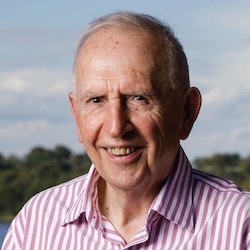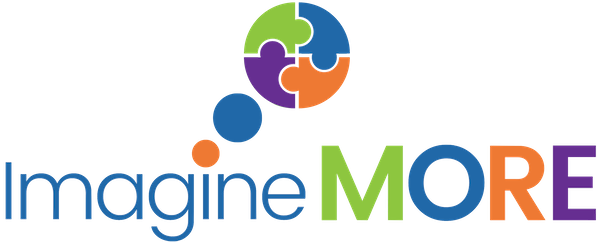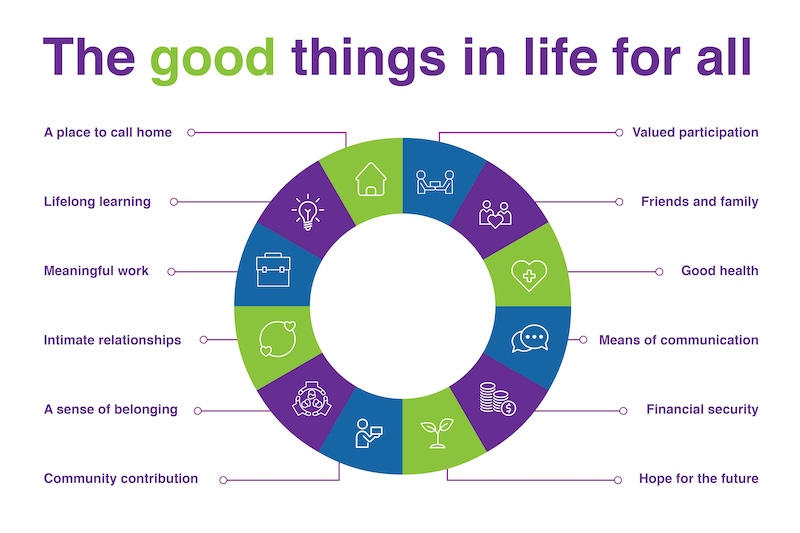Today, we contributed to a workshop titled When you’re gone: Safeguarding the future of your family member with disability. This topic always creates a lot of interest, and the tickets to this workshop were snapped up in a matter of days! We’re sorry to anyone who missed out on being in the room.
In the workshop, we heard that safeguarding wasn’t just about the nuts and bolts of wills, disability trusts, guardianship, and estate planning. Holding a strong vision for a person with disability to get the good things in life is just as, perhaps even more important. But putting this vision into action requires thoughtful planning and courage.
During today’s workshop, we filmed Sherryn West’s presentation. Sherryn generously shared her story of carrying the vision for her sister Marisha to have a great life since their mother passed away. We look forward to sharing her presentation with you in the coming weeks.
NDIS funding and safeguarding
Safeguarding a vulnerable person’s future doesn’t need to rely solely on those who love and care for the person. Some paid support can also be vitally important. With this in mind, we are helping to safeguard the NDIS by attending review conversations. We’re advocating for the scheme to operate using a social model instead of the current medical model. That’s because
- therapy alone doesn’t help a person get the good things in life. Yet, the NDIS is currently more comfortable funding therapy than non-therapy-based ways of achieving goals and building capacity.
- life-wasting programs that fill a person’s day with activities don’t lead to the good things in life. Yet, these are what is on offer from many human services organisations.
- endlessly visiting tourist attractions or only going for coffee with a support worker doesn’t help people experience the good things in life. Yet this is the “community access” work that many support workers are expected to do.
What does help a person to get the good things in life is being known, being loved, and holding valued roles.
To become known, people need assistance to build and nurture relationships and networks. Janet Klees calls this approach ‘building a bridge’ and explains it beautifully in her workshop, Building a context for relationship. We’ll share a replay of this workshop in the coming weeks.
People need to be supported to take up valued roles in their community. When a person is seen to hold valued roles, they are more likely to be treated well and offered other opportunities in life.
Helping people with disability become known and hold valued roles is the best safeguard we can invest in.
Kindness, connection, and community
 We recently uploaded several resources from our 2021 Get That Good Life! conference onto our website. Among them was a presentation by Hugh Mackay AO called Kindness, connection, and community. You can watch this 44-minute video on our website.
We recently uploaded several resources from our 2021 Get That Good Life! conference onto our website. Among them was a presentation by Hugh Mackay AO called Kindness, connection, and community. You can watch this 44-minute video on our website.
My big takeaway from this presentation was that being known in our neighbourhood gives us a sense of belonging and safety. So the simple act of showing kindness to our neighbours, sharing a friendly smile or wave, may one day lead to an exchange of greetings and names, a short and then a longer conversation, a gift of fruit, eggs from the backyard chooks, or flowers, or even an enduring friendship.
Neighbours can make life sweeter for everyone they know, even if they only know you as “that person from number 63 who always says hello when we walk past”. And they are also a critical part of our security net, by noticing when something isn’t right and then raising the alarm or lending a hand.
So if neighbours have the potential to increase community connections and provide safeguarding, our family members with disability can benefit by getting to know their neighbours and learning how to be good neighbours themselves.
This Sunday, 26 March, is Neighbour Day. So watch Hugh’s presentation, and then use these last days of daylight saving to walk around your neighbourhood with your family saying ‘hello’. You just might make someone’s day 🙂
This article was first published in our newsletter on 23 March 2023

